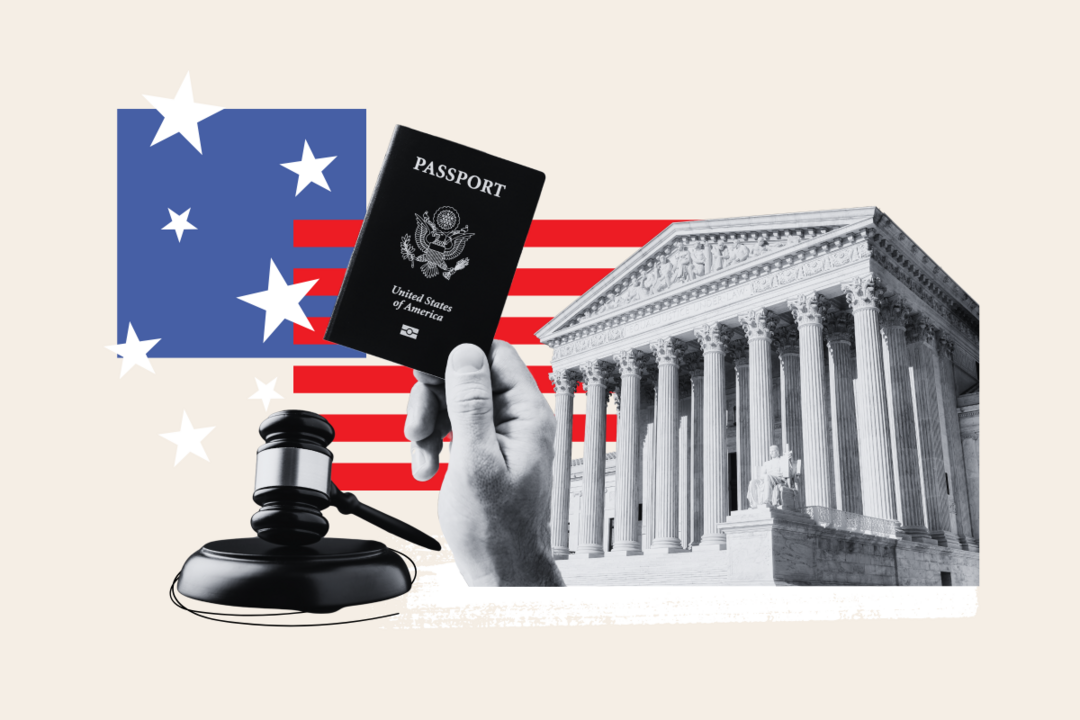
WASHINGTON D.C. – The U.S. Supreme Court has put a stop to lower courts' nationwide injunctions against President Donald Trump's "birthright citizenship restriction" executive order. This ruling effectively allows the executive order to be reimplemented in 28 states after a 30-day grace period, which is seen as providing legal legitimacy to the Trump administration's immigration policies.
On June 27 (local time), the Supreme Court, in a 6-3 decision with six conservative justices and three liberal justices, ruled that lower courts cannot issue nationwide injunctions to halt federal government policies. However, the Court reserved judgment on the constitutionality of the birthright citizenship policy itself. As a result, the executive order can take effect in 28 states, excluding the 22 states and Washington D.C. that filed lawsuits and obtained preliminary injunctions, starting 30 days from now.
This ruling addresses the nationwide injunctions issued by federal district courts in Maryland, Massachusetts, and Washington state against the Trump executive order. The Supreme Court determined that courts overstepped their authority by issuing orders that extended beyond the scope of the original plaintiffs in the lawsuit. Justice Barrett emphasized, "While the executive branch must certainly follow the law, the judiciary also cannot overstep its role. Courts can only provide relief limited to individual cases and parties."
Conversely, Justice Sonia Sotomayor, along with Justices Elena Kagan and Ketanji Brown Jackson, dissented, arguing, "The majority ignored the unconstitutionality of the executive order and merely questioned the court's authority. Since the executive order is clearly unlawful, a nationwide injunction is necessary to block it."
On his first day in office, January 20, President Trump signed an executive order that denies citizenship to children born in the U.S. if neither parent is a U.S. citizen or legal permanent resident. In response, attorneys general from 22 states led by Democratic governors, along with Washington D.C., immigrant rights organizations, and pregnant immigrants, filed constitutional challenges. Some lower courts had previously issued preliminary injunctions to halt the executive order's enforcement.
The 22 states where the birthright citizenship ban has been enjoined are Washington, Arizona, Illinois, Oregon, New Jersey, Massachusetts, California, New York, Connecticut, Rhode Island, Michigan, Colorado, Delaware, Nevada, Hawaii, Maryland, Maine, Minnesota, New Mexico, Vermont, Wisconsin, and North Carolina. They argue that the policy violates the 14th Amendment's clause stating, "All persons born or naturalized in the United States, and subject to the jurisdiction thereof, are citizens of the United States." This clause was adopted after the Civil War in 1868 to guarantee citizenship to those born after the emancipation of slaves.
The American Civil Liberties Union (ACLU) issued a statement strongly criticizing the executive order, calling it "plainly illegal and cruel" and asserting that "it should not be applied to anyone." After the ruling, Justice Sotomayor advised affected parents to "promptly file class-action lawsuits and seek temporary restraining orders," and the plaintiffs in the Maryland case applied for class-action certification just two hours after the ruling, signaling continued opposition.
This Supreme Court ruling is expected to intensify the debate over birthright citizenship. A Reuters/Ipsos poll conducted from June 11-12 showed that only 24% of respondents supported abolishing birthright citizenship, while 52% opposed it. Notably, 84% of Democratic supporters opposed it, whereas among Republican supporters, 43% favored it and 24% opposed it, demonstrating stark political polarization. Immediately after the ruling, President Trump hailed it as a "huge win" on social media, interpreting the decision as a boost to his immigration policies. This ensures that birthright citizenship will be a significant issue in the upcoming elections.
[Copyright (c) Global Economic Times. All Rights Reserved.]






























